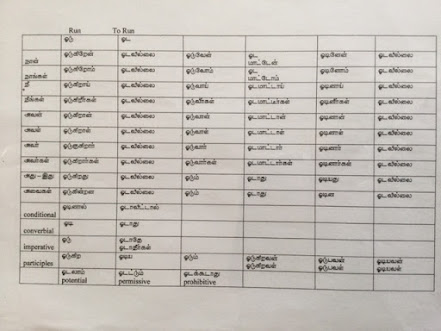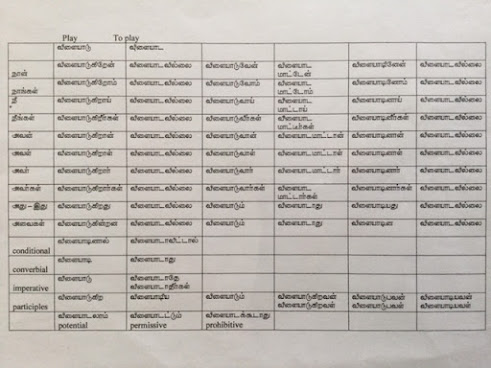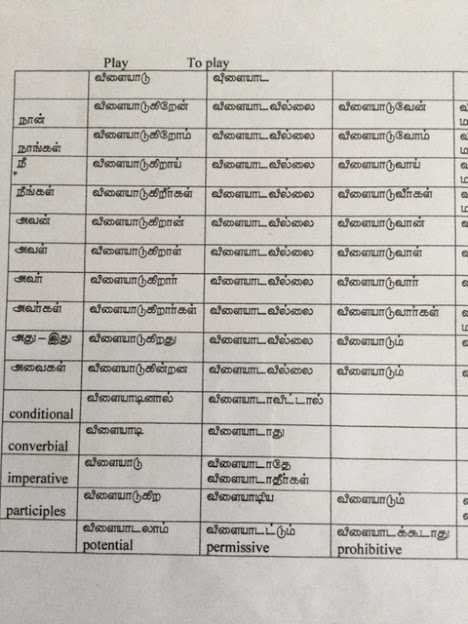
Post No. 11,413
Date uploaded in London – 4 November 2022
Contact – swami_48@yahoo.com
Pictures are taken from various sources for spreading knowledge.
this is a non- commercial blog. Thanks for your great pictures.
tamilandvedas.com, swamiindology.blogspot.com
https://www.pustaka.co.in/home/author/london-swaminathan
Xxx
In Tamil you can change one sentence in to a question or uncertain or emphasizing by adding one Tamil letter. When you do this, you have to follow Sandhi rules (Sandhi- Joining).
Only two languages in the world Tamil & Sanskrit follow Sandhi Rules today in speaking and writing, because both of them belong to same family; both of them derived from Lod Shiva’s Kettle drum sound;
Panini, Sivangnaana Munivar, Paranjoti Munivar and Bharati said it. So it is a 2700 year old belief and practically true. No Tamil or Sanskrit speaker can speak or write without Sandhi rules. All old prose and poetry were written strictly following these rules. You can see it in all stories and novels even today. Some European languages use sandhi in a few places, because they are all derived from Sanskrit.
xxx
To make one verb or a pronoun or a noun a Question/ Interrogative one add AA ஆ,
To make one verb or a pronoun or a noun an uncertain, doubtful one add OO ஓ,
To make one verb or a pronoun or a noun an emphatic one add EE- ஏ
ன்+ஆ= னா N+AA= Naa? QUESTION
ன்+ஓ = னோ N+OO= Noo (not nuu) DOUBTFUL
ன்+ஏ = னே N+ EE = Nee (not nii) EMPHATIC
அவன் ன்+ஆ= னா = அவனா? or அவரா (ர்+ஆ= ரா)
Is he or was he or will he? In other words He?????
xxxx
அவன் ன்+ஓ = னோ = அவனோ / அவரோ
Doubtful or uncertainty ( in poems exclamatory)
Is he or someone else ????, was he someone else or ????, will he someone else ? or ????i n other words He or someone else !!!
xxxx
அவன் ன்+ஏ = னே = அவனே / அவரே
Emphasizing
He himself or indeed it is He
Xxx





Some more Tamil verbs are here
Play விளையாடு
Run ஓடு ( same class ஆடு dance, பாடு sing , தேடு search, கூடு assemble , சாடு lash at பூட்டு lock, ஆட்டு shake, jiggle, swing)
Both these are third class verbs. We have more third class verbs in Tamil language than the other six classes.
Xxx
Let us lean Converbial positive
What is converbial?
In English when one does two or three actions you use AND; in Tamil we use converbial form of the verb instead of And, and, and,
He came and ate; she comes and sings; they will go to Madurai and see the temple. Instead of AND, one may use Having gone or After going.
In Tamil only converbial is used.
How to form Converbial Positive?
You add U உ sound for all classes except third class verbs where you add இ to the PAST TENSE STEM
வந்தான்- வந்த் (+ உ =வந்து)
விளையாடினான் -விளையாட் (+ இ = விளையாடி)
போட்டான் – போட்ட் (+ உ= போட்டு)
ஆடினான் , பாடினான் – ஆட், பாட் + இ =ஆடி, பாடி
She came and sang= அவள் வந்து பாடினாள்
She will go there and dance அவள் அங்கே போய் ஆடுவாள்
Because GO in Tamil is an irregular verb it does not obey the rules. So you use போய்; you learn it from book or from a native speaker
Xxx
Look at all the tables I provided you in the past 18 lessons. All tables show Converbial form of each verb.
They don’t show you PGN or Tense. Only the last verb (finite verb) shows the PGN or tense. So it is a subordinate verb.
In Tamil you may add many actions or tasks done by a person or persons in converbial form and make one sentence.
Example: They went there, saw God and ate= அவர்கள் அங்கே போய் கடவுளைப் பார்த்து ( தரிசித்து), சாப்பிட்டனர்.
The last action /verb/finite verb சாப்பிட்டனர் only tells you PGN and Tense
You may use my YOU TUBE lessons and accompanied lessons as well; they were posted ten years ago.
to be continued………………………
Tags- Tamil Verbs, Converbial, Play, Run, Lock, Dance, Sing, Interrogative, Emphatic